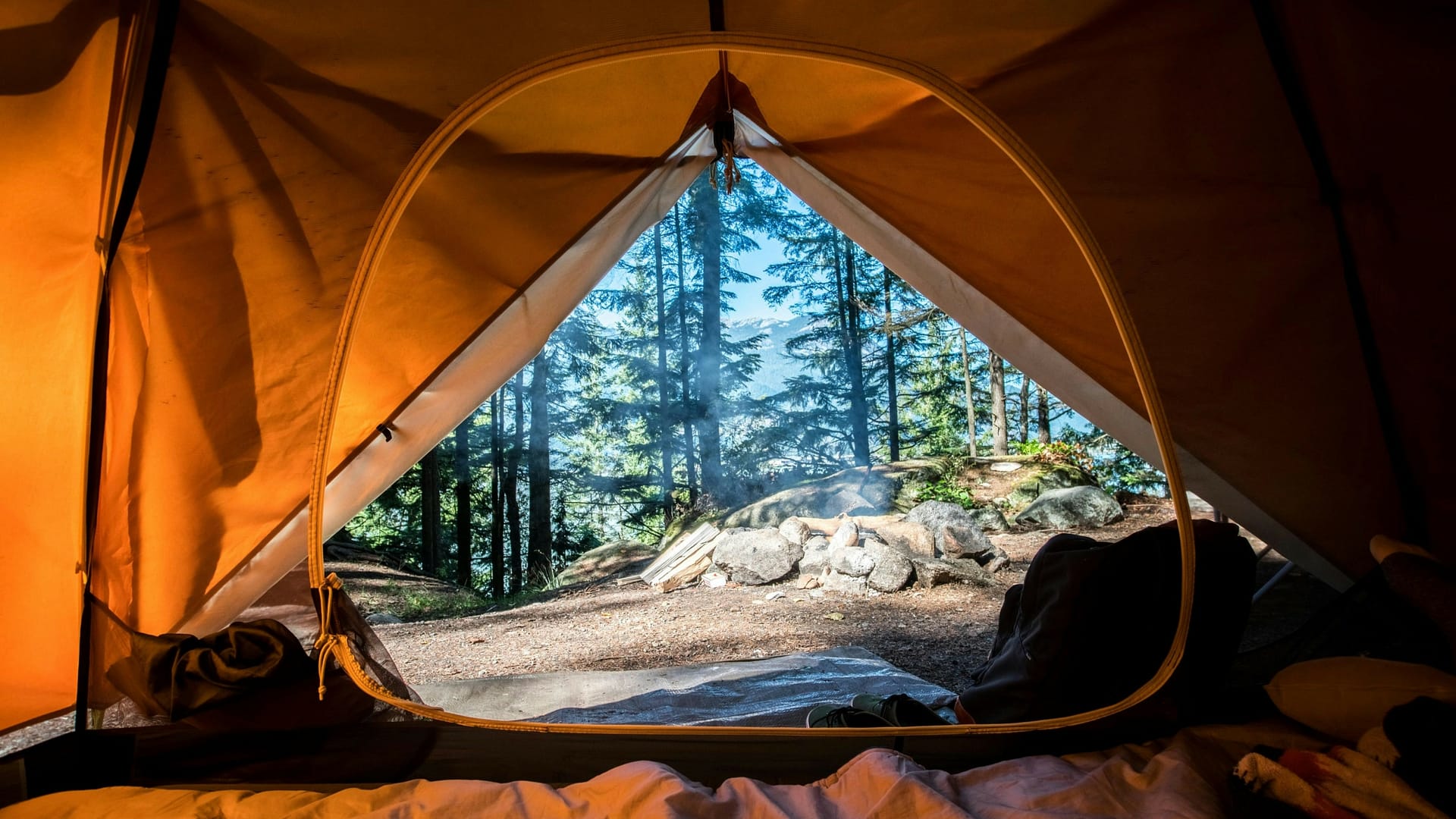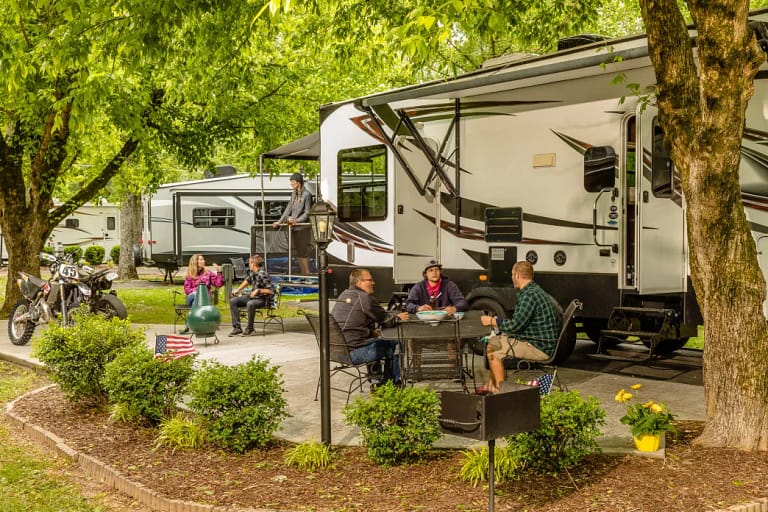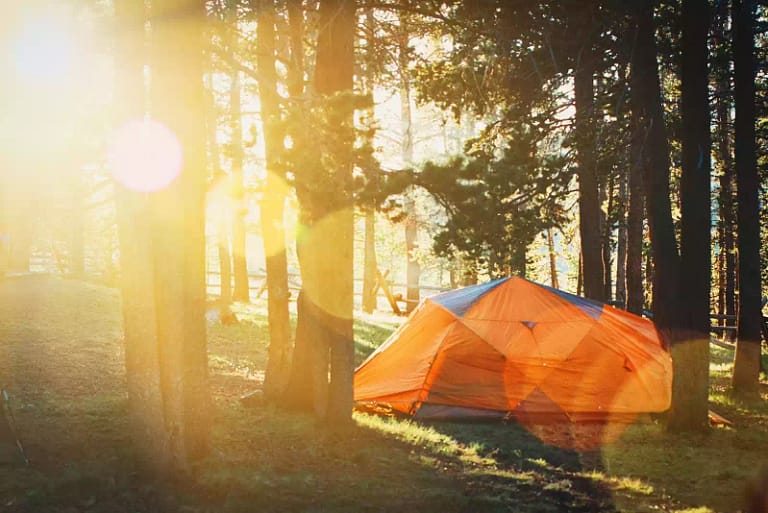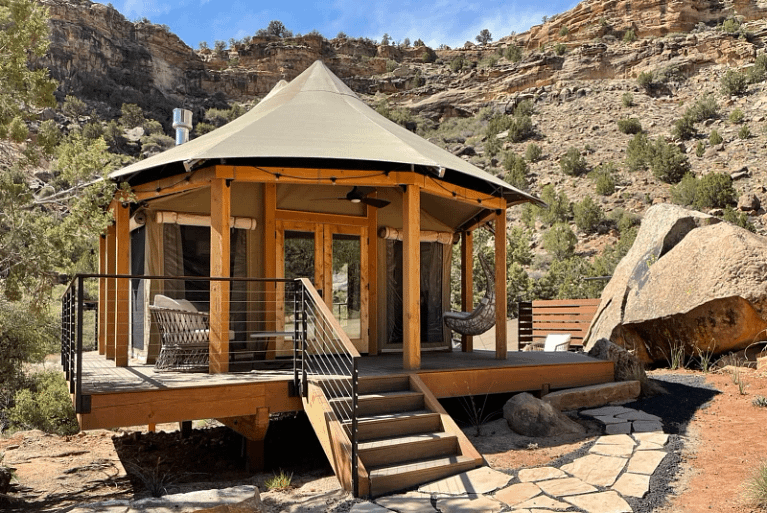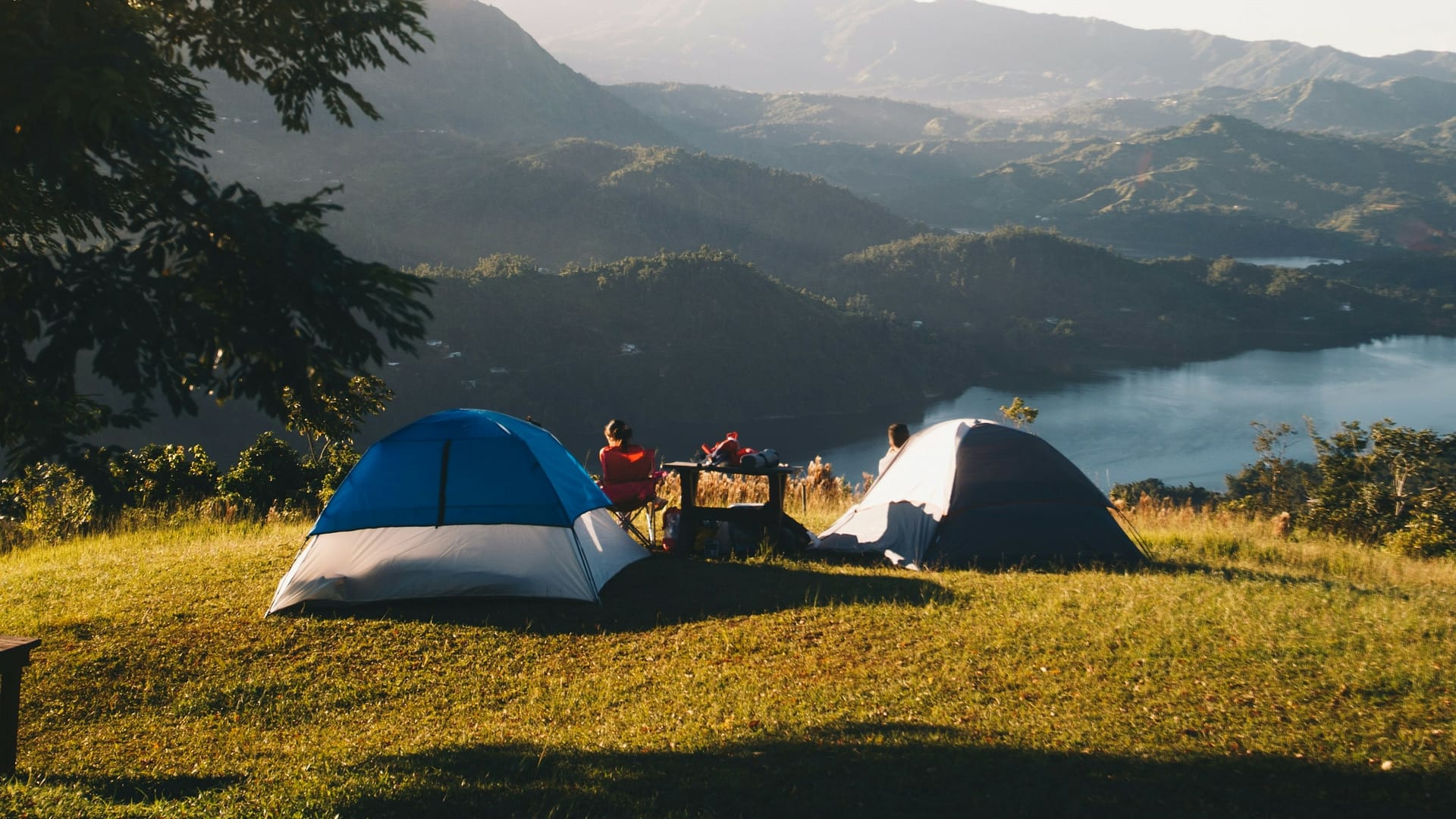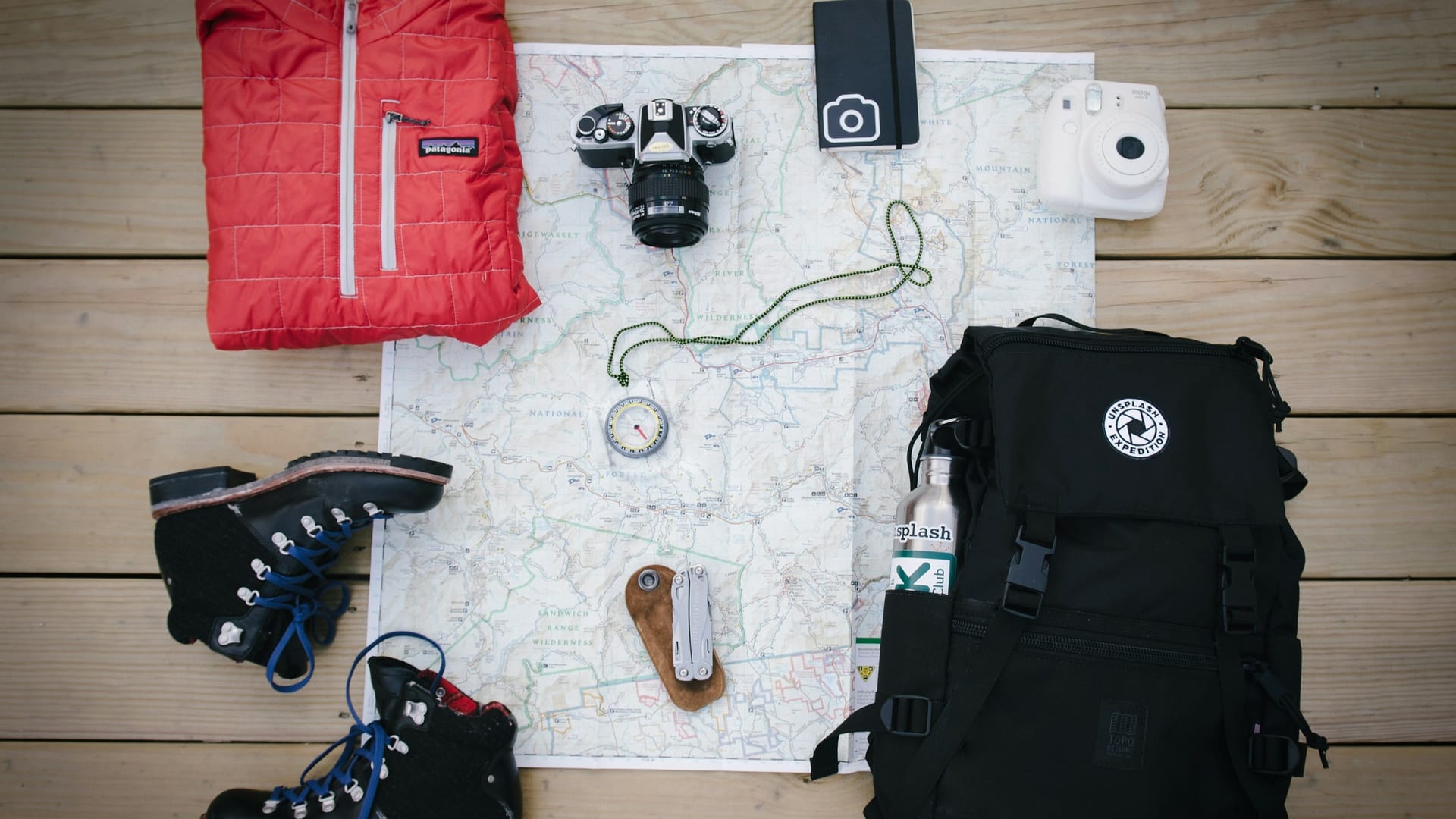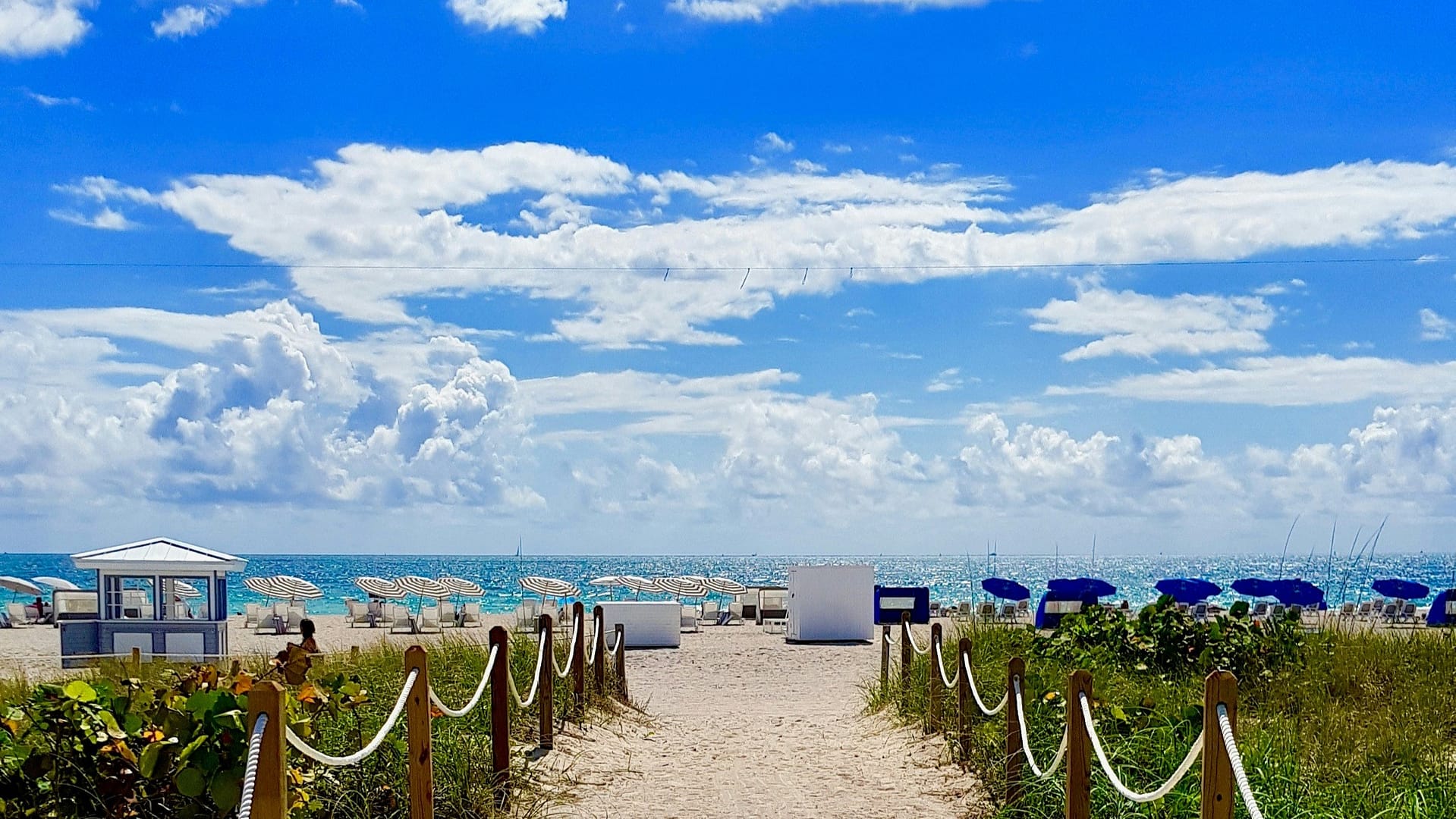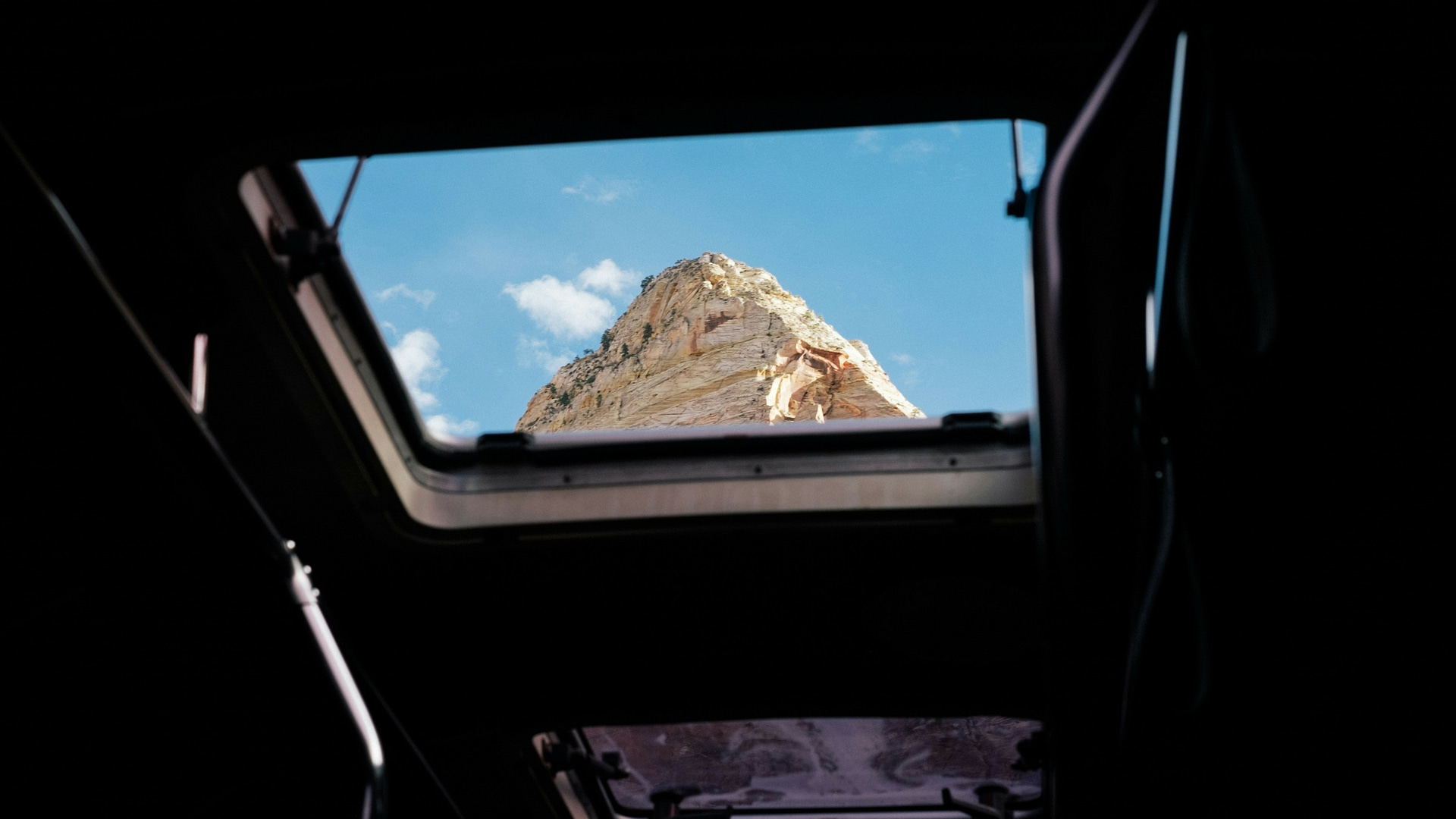So, you’re looking online for camping tips because you’ve never done it before. You’re educating yourself so you can enjoy your experience. Awesome! Stepping into the great outdoors to camp for the first time can be thrilling. The allure of nature, the promise of adventure… it’s all waiting for you!
But camping, especially for first-timers, can also be daunting. There’s much to consider, from choosing the right campsite to packing the right gear.
That’s where we come in. At BookOutdoors, we specialize in helping people get the most out of their camping trips, RV’ing, glamping, and more.
This camping tips guide will help you navigate the basics. We’ll cover everything from setting up your tent to building a campfire. We aim to equip you with the knowledge and confidence you need for a fantastic, memorable trip!
And, this guide is for you whether you plan a solo adventure or a family outing.
Let’s get started on your journey into the wild.
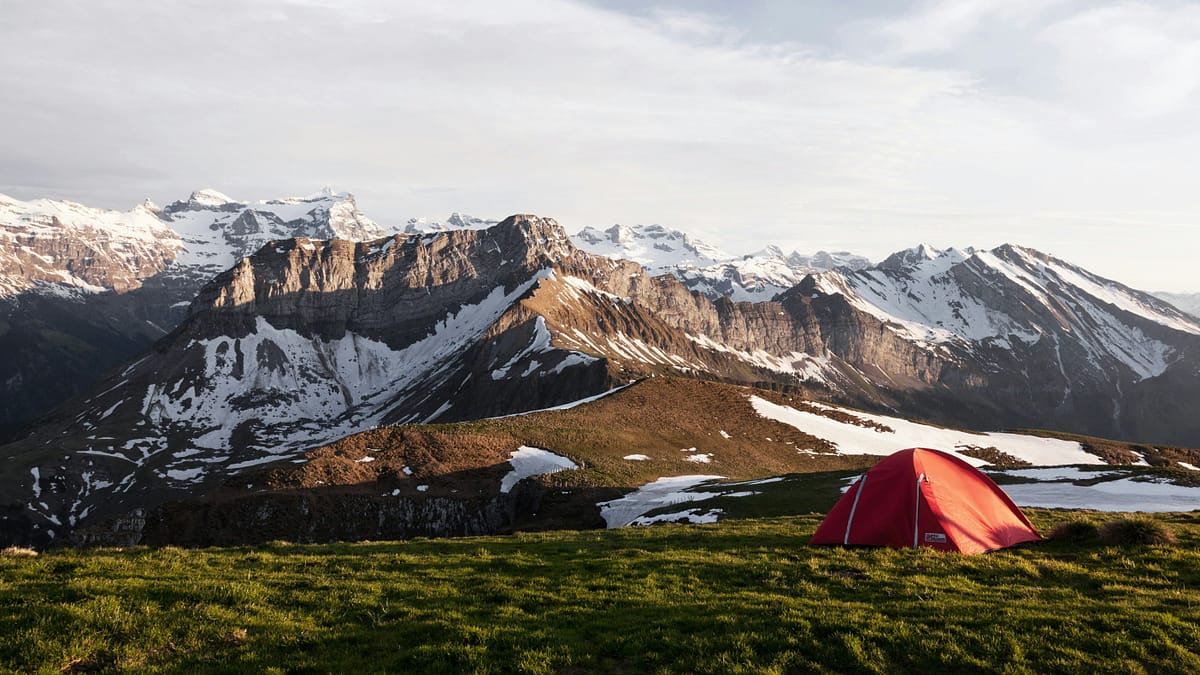
In this article:
Toggle- Choosing Your Campsite: So Many Choices!
- Different Types Of Camping
- Camping Essentials: Gear Checklist
- Camping Tips About Fire & Safety
- Meal Planning & Cooking Essentials
- Hydration & Water Purification
- First Aid & Emergency Preparedness
- Leave No Trace & Campground Etiquette
- Wildlife & Food Storage
- Navigation & Technology In Camping
- Final Thoughts: Enjoying Your First Camping Experience
Choosing Your Campsite: So Many Choices!
The first step in planning your camping trip is choosing the right campsite. This decision can greatly impact your overall camping experience. And, here’s the issue: in America along there are over 15,000 different campgrounds and RV park businesses (as of 2023) to choose from…yeah, that’s a lot.
Aside from specific location, consider factors such as the availability of amenities, proximity to water, and the level of privacy. It’s also important to research the campsite’s rules and regulations.
Here are a few camping tips to help you choose the right spot:
- Look for flat, dry ground to set up your tent.
- Choose a site with some natural shade.
- Ensure the site isn’t too close to water (river/lake) to avoid insects.
- Check if the site allows campfires.
- Consider the site’s proximity to toilets and other amenities.
Those are the basics. But…there’s more.
Be sure to hop online and check for reviews of the campground or the park or area where it’s located. These days, there are likely to be at least a handful (to hundreds, if not thousands in some cases). They’ll give you all the on-the-ground camping tips you need to know.
For an example, let’s say you plan on camping Zion National Park in a van or RV. Try looking online for ‘Zion National Park’ in Utah. Right off the bat you’ll see tens of thousands of reviews. Yeah, that many. One of them reads:
“My second visit. I visited in February so it wasn’t super crowded and the shuttles weren’t operating. I stayed at the Watchmen campground and I liked it, except for the lack of showers. Toured the park almost all day and went through from end to end twice. First stop was the Narrows parking lot as it fills up fast. For most of the day I stopped at roadside pullouts and that worked well most of the time. I had trouble parking at the Lodge for lunch so I had to do a little hike. The stargazing was very good.”
Different Types Of Camping
Camping can take many forms, each offering a unique experience. The type of camping you choose will dictate the gear you need and the preparations you must make.
Here are the most common types of camping:
- Tent camping is the most traditional form, where you pitch a tent and sleep in it overnight.
- RV camping is traveling/staying in a recreational vehicle with more comfort and amenities.
- Backpacking is an adventurous form, where you carry your gear and hike to your campsite.
- Glamping is a luxurious form, with comfortable accommodations and amenities.
Along with dictating the gear and supplies you’ll need, these also indicate the cost. They can be variable, but tent camping is generally the least expensive, and RV camping is on the other end.
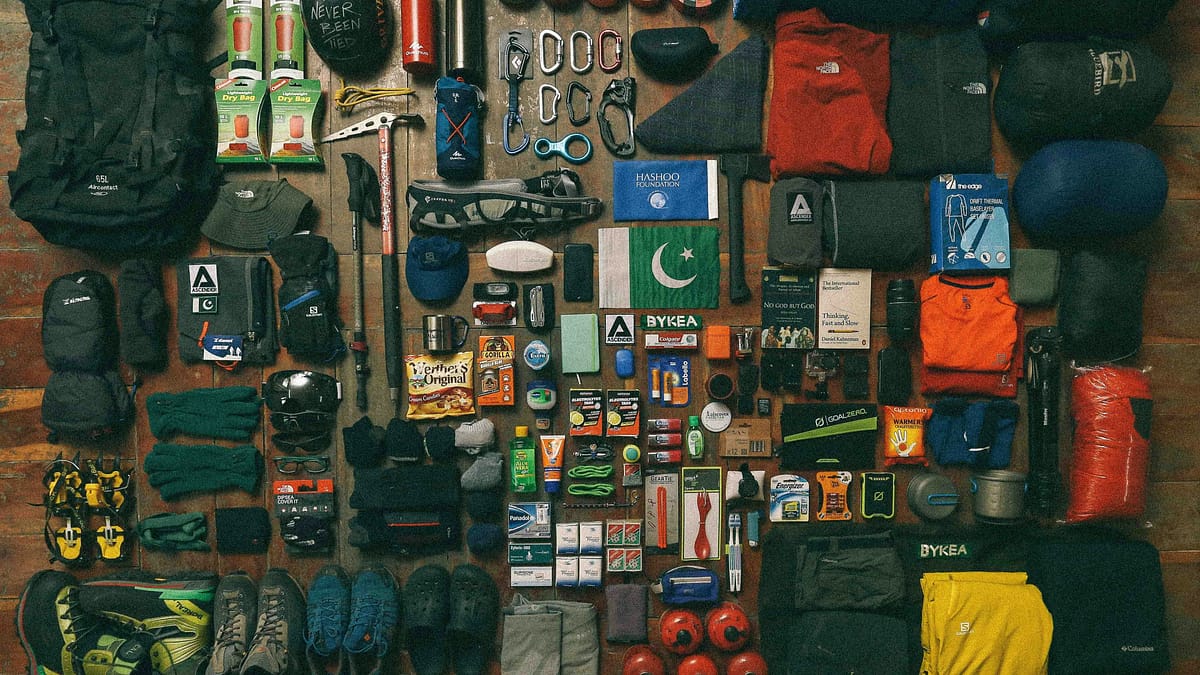
Camping Essentials: Gear Checklist
This is one of the most important camping tips! Having the right gear is crucial for a successful adventure. The gear you need will depend on the type of camping you choose, the weather, and your preferences.
Here’s a basic camping gear checklist to get you started.
- Tent with sleeping bag & pad.
- Camping stove and fuel.
- Food and water.
- First aid kit and multi-tool or knife
- Map and compass, with headlamp or flashlight
- Matches or lighter
- Clothing appropriate for the weather
- Personal hygiene items
Relevant Article: Camping Essentials (10 Things You Might Forget to Bring)
You want to avoid over-preparing or packing in way too much gear. Folks who need more camping experience should first stick with popular, well-traveled, and well-maintained campgrounds. These will usually be close to towns or areas where you can get what you need nearby.
Tent Setup & Selection
Choosing the right tent is crucial. And unfortunately, there are 100 different kinds to choose from (probably far more). It should be big enough for everyone in your group, easy to set up, and durable enough to withstand the weather conditions you’ll face.
Setting your tent up correctly is also essential. Practice setting it up at home before your trip. You don’t want to try setting it up in the wind, rain, or at night until you’ve got some practice. This will help you become familiar with the process and ensure you have all the necessary parts.
Sleeping Bags & Pads
A good sleeping bag is essential for a comfortable night’s sleep. Choose a sleeping bag appropriate for the weather conditions you’ll be camping in.
A sleeping pad is also important. It provides insulation from the cold ground and adds an extra comfort layer. Different types of sleeping pads are available, so choose one that suits your needs and comfort level. Again, always read reviews! Don’t use pricing as a guide. Find the types of bags/pads within your budget, then do some research.
Weather-Appropriate Clothing
Dressing appropriately for the weather is crucial when camping. Layering your clothing allows you to adjust to changing temperatures and weather conditions.
- Camping/hiking shoes/boots.flip-flops, etc.
- Extra pairs of socks and underwear.
- Casual clothes.
- Clothes appropriate for the activities you plan on doing.
Relevant Article: Camping Fashion: Stay Warm and Stylish this Winter
Remember to pack a waterproof jacket and pants in case of rain, as well. Also, remember warm clothing for the evenings, as temperatures can drop significantly at night.
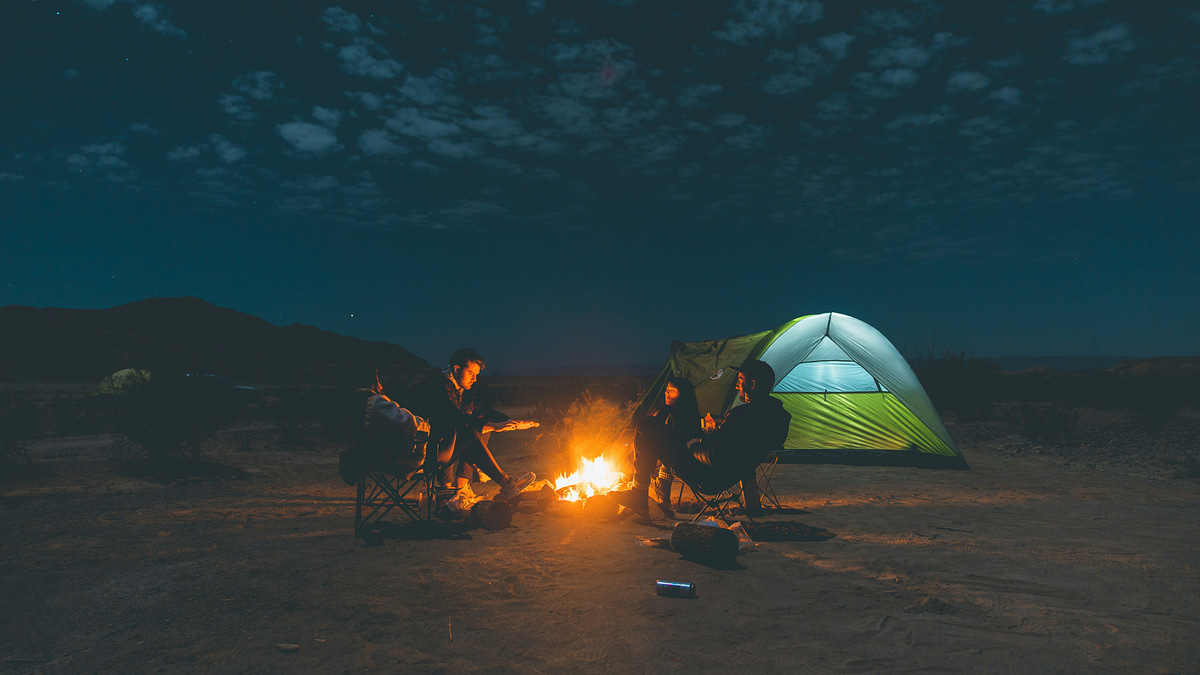
Camping Tips About Fire & Safety
Building a campfire is a quintessential part of the camping experience. However, it’s important to do it safely. Always check if campfires are allowed at your campsite, and never leave a fire unattended.
Choose a spot away from your tent and trees when building a fire. Use a fire ring if available (very common in campgrounds). Remember to fully extinguish the fire before going to bed or leaving the campsite. Safety should always be your top priority.
Meal Planning & Cooking Essentials
Planning meals for your camping trip can be a fun part of the preparation process. It’s important to pack food that is non-perishable and easy to cook. Consider meals that can be prepared in one pot to minimize cleanup.
Here are some meal ideas:
- Pre-made sandwiches
- Canned beans and vegetables
- Instant noodles or pasta
- Trail mix and granola bars
- Fresh fruits and vegetables
Relevant Article: Camping Food Ideas The Kids Love
Remember to pack cooking essentials like a portable stove, pots, utensils, and a cooler if needed.
Hydration & Water Purification
Staying hydrated is crucial when camping. Always pack more water than you think you’ll need. A good rule of thumb is bringing at least 2 liters (at least 1 gallon) per person daily. Then there’s the water you’ll need for other things like cooking, cleaning utensils and plates, etc.
Knowing how to purify water is wise in case you run out. Boiling is the most common method, but water purification tablets or a portable filter can also be handy.
First Aid & Emergency Preparedness
A first aid kit is essential for camping. It should include bandages, antiseptic wipes, tweezers, medical tape, and pain relievers. If you’re in a snake-prone area, remember personal medications and a snake bite kit. Camping med kits and survival kits are readily available online from various platforms. They can be small, less expensive, or more costly, but they provide a LONG list of different medical tools and supplies.
It’s also important to have an emergency plan. Inform someone about your trip details (where, when, and what route you’re taking) and your expected return. Carry a whistle for emergencies and consider a GPS or emergency beacon for remote areas.
Leave No Trace & Campground Etiquette
Respecting nature is a vital part of camping. Follow the ‘Leave No Trace’ principles: dispose of waste properly, leave what you find, respect wildlife, and minimize campfire impact.
Campground etiquette is also important. Keep noise levels down, respect other campers’ space, and follow campground rules. Remember, you’re sharing the outdoors with others.
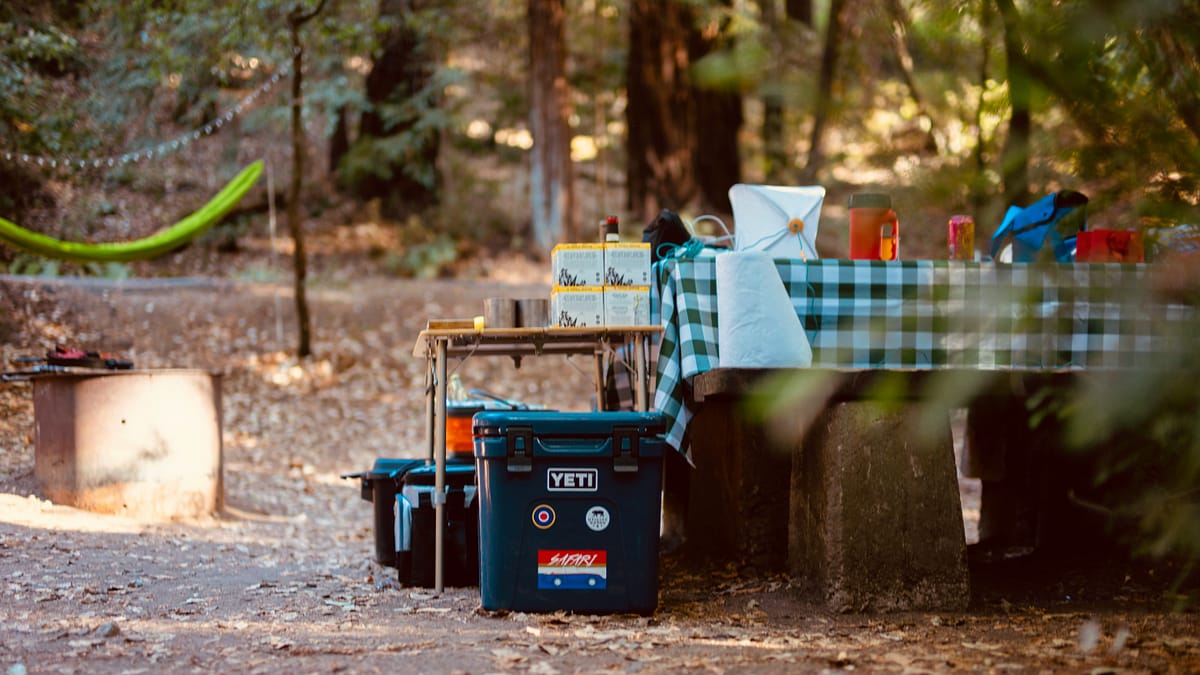
Wildlife & Food Storage
Wildlife encounters can be thrilling, but safety is paramount. Learn about local wildlife and how to store food to avoid attracting animals to your campsite.
Remember, never feed wild animals. It’s harmful to them and can lead to aggressive behavior. Always keep a safe distance. Also, be sure to check message boards and ranger stations for any animal or plant-related information you need to know.
Navigation & Technology In Camping
Navigating in the wilderness can be challenging. Basic skills like reading a map and using a compass are invaluable. Always have a map!
Modern technology like GPS can be helpful but don’t solely rely on it. Batteries can die, and signals can be weak or non-existent in remote areas.
Final Thoughts: Enjoying Your First Camping Experience
We genuinely hope these camping tips have helped you. Because camping for the first time can be a thrilling experience. It’s a chance to connect with nature, learn new skills, and make lasting memories.
Remember, the goal is to enjoy the journey, not just the destination. So, take your time, be safe, and most importantly, have fun. Happy camping!

